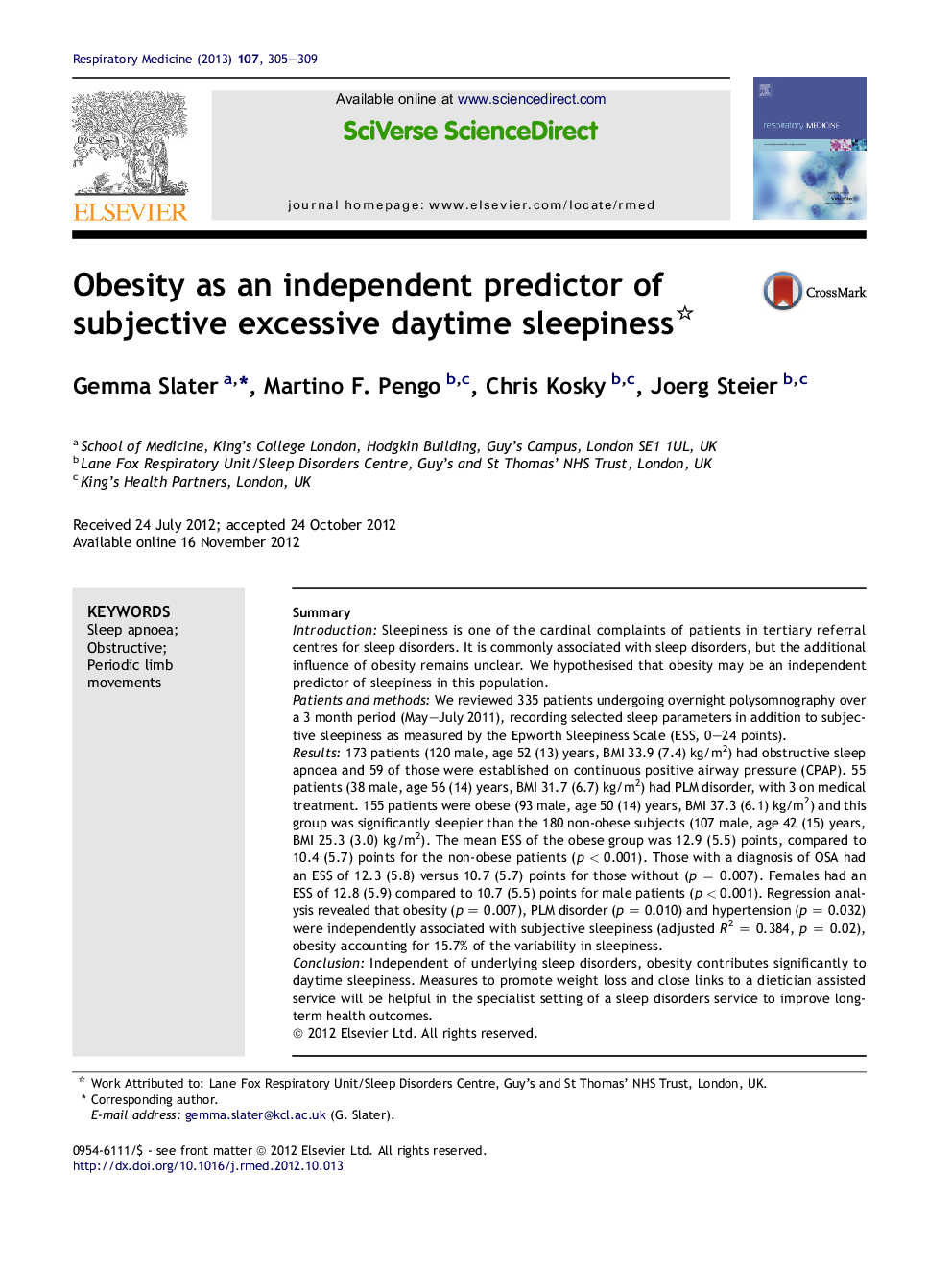| کد مقاله | کد نشریه | سال انتشار | مقاله انگلیسی | نسخه تمام متن |
|---|---|---|---|---|
| 4210695 | 1280605 | 2013 | 5 صفحه PDF | دانلود رایگان |

SummaryIntroductionSleepiness is one of the cardinal complaints of patients in tertiary referral centres for sleep disorders. It is commonly associated with sleep disorders, but the additional influence of obesity remains unclear. We hypothesised that obesity may be an independent predictor of sleepiness in this population.Patients and methodsWe reviewed 335 patients undergoing overnight polysomnography over a 3 month period (May–July 2011), recording selected sleep parameters in addition to subjective sleepiness as measured by the Epworth Sleepiness Scale (ESS, 0–24 points).Results173 patients (120 male, age 52 (13) years, BMI 33.9 (7.4) kg/m2) had obstructive sleep apnoea and 59 of those were established on continuous positive airway pressure (CPAP). 55 patients (38 male, age 56 (14) years, BMI 31.7 (6.7) kg/m2) had PLM disorder, with 3 on medical treatment. 155 patients were obese (93 male, age 50 (14) years, BMI 37.3 (6.1) kg/m2) and this group was significantly sleepier than the 180 non-obese subjects (107 male, age 42 (15) years, BMI 25.3 (3.0) kg/m2). The mean ESS of the obese group was 12.9 (5.5) points, compared to 10.4 (5.7) points for the non-obese patients (p < 0.001). Those with a diagnosis of OSA had an ESS of 12.3 (5.8) versus 10.7 (5.7) points for those without (p = 0.007). Females had an ESS of 12.8 (5.9) compared to 10.7 (5.5) points for male patients (p < 0.001). Regression analysis revealed that obesity (p = 0.007), PLM disorder (p = 0.010) and hypertension (p = 0.032) were independently associated with subjective sleepiness (adjusted R2 = 0.384, p = 0.02), obesity accounting for 15.7% of the variability in sleepiness.ConclusionIndependent of underlying sleep disorders, obesity contributes significantly to daytime sleepiness. Measures to promote weight loss and close links to a dietician assisted service will be helpful in the specialist setting of a sleep disorders service to improve long-term health outcomes.
Journal: Respiratory Medicine - Volume 107, Issue 2, February 2013, Pages 305–309